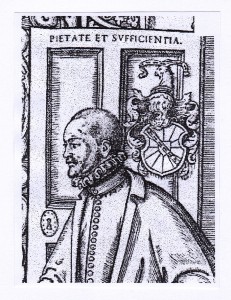Territories and Local Digital Democracy is a digital media posted on the site http://savigny-avenir.info. (ISSN 2261-1819. Digital legal deposit, Bibliothèque Nationale de France).
- The site is supported by an associative and collaborative, non-profit structure, the Groupe Mieux Aborder L’Avenir (MALA) (Better Approach The Future/BATF).
- All online articles are freely available in their entirety. An article may be reproduced provided that its source is quoted and by including its link http://
- You can help us with your donations. http://www.savigny-avenir.fr/faire-un-don/
TERRITORIES AND LOCAL DIGITAL DEMOCRACY
« Sooner or later, near or far, has the strength of the weak need. » (1) This motto – which is in fact an epigraph – is inscribed at the top of the Complete Paintings of All the Liberal Arts (« Tableaux accomplis de tous les arts libéraux… ») published in 1587 by Christophe de SAVIGNY (1530-1587), a humanist of the French Renaissance. It introduces three essential notions:
• balance of power (strong/weak),
• temporality (“tost”/late),
• prefiguration of the modern general interest (the “need”).
It constitutes a founding injunction of a moral, social, political and spiritual program. It is a manifestation of the encyclopedic spirit, that is to say of the εγκυκλο παίδεια (“enkuklios paideia”), the circular education which embraces a whole circle.
Any educational process – any teaching received or dispensed (“teaching of oneself” and “teaching of others” cannot be dissociated) – is paradoxical, as SAINT AUGUSTIN writes in his Soliloquies : “We sometimes learn that what we believed to be ours is foreign, and that what we thought was foreign is ours”. (2)
1. SAVIGNY Christophe de (1587). Tableaux accomplis de tous les arts libéraux, contenans brièvement et clerement par singulière méthode de doctrine, une générale et sommaire partition des dicts arts, amassez et reduicts en ordre pour le soulagement et profit de la jeunesse, Paris, Jean et François de Gourmont.
2. AUGUSTIN (Saint Augustin) (354-430). Soliloquies, I, 3.
FOR A GLOBAL ANTHROPOLOGY OF THE PRESENT
• “Anthropology is the discipline which has as its specificity a mode of production of knowledge based on interpersonal communication with actors. (p. 10)
• “Anthropology and its interlocutors are no more immune than others to these cognitive bubbles that operate on the common interests and drive the real markets of the unreal, and unreal of the real « . (p. 22)
• Imposes on us « to think and decipher the present world as it is, with all its salient horrors and its ever-increasing crucibles of imaginary artifices » having as a perspective « that this unveiling of torn meanings allows you to set benchmarks for future paths ». (p. 169)
SELIM Monique (2019). Anthropologie globale du présent (Global anthropology of the present), L’Harmattan, 259 p. ISBN 978-2-3-43-17467-9
http://www.savigny-avenir.info 2,500 articles online, 4,000 photos and documents, 4 million pages read since the site created in 2010.
Global anthropology of the present. Citizen anthropology. Territorial intelligence. Editorialization of local identities. Policy narratives. Local governance. Participative democracy. Circular education.

